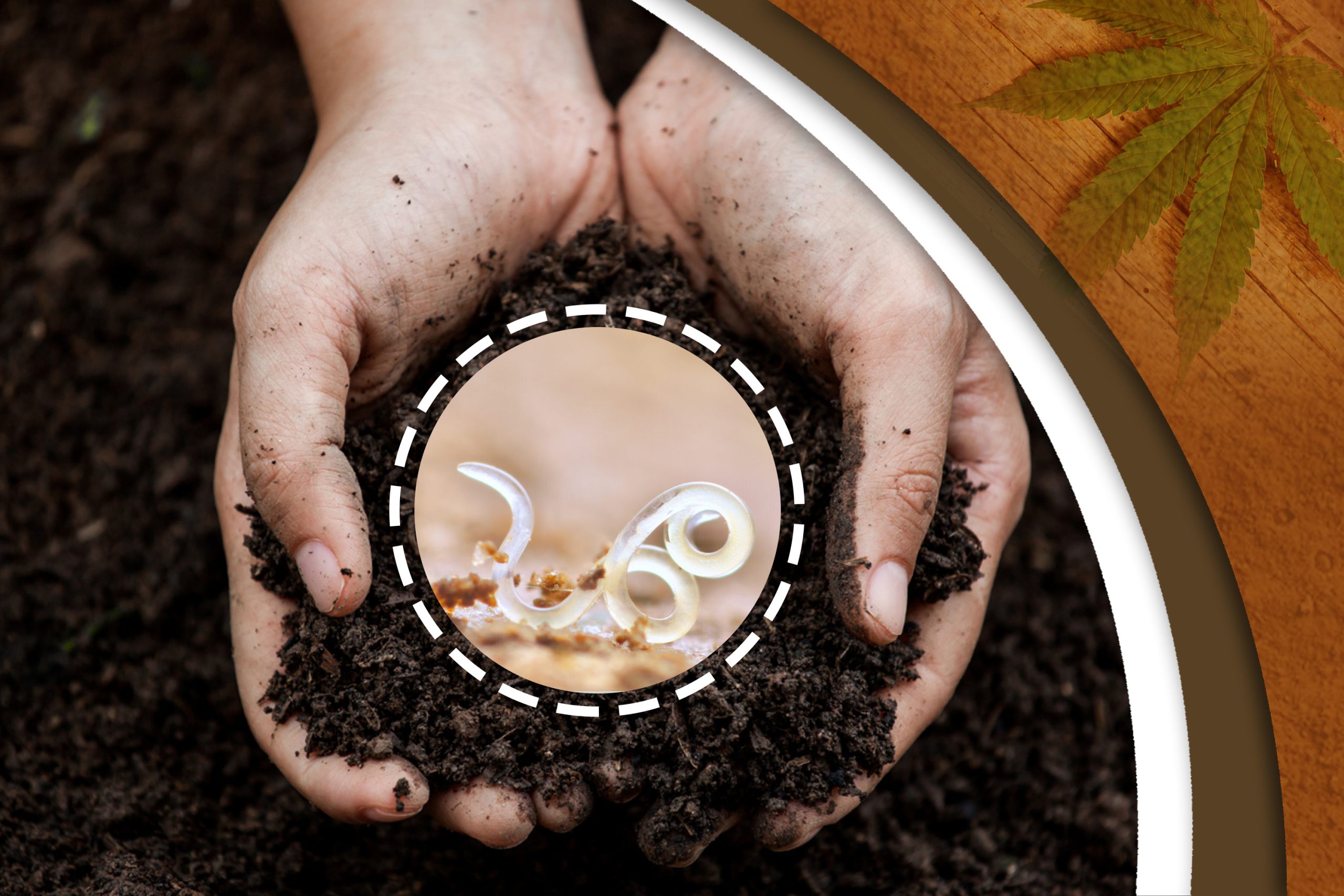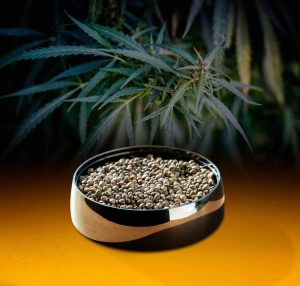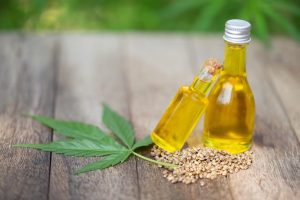
Unveiling the Marvels of Nematodes for Cannabis Cultivation

Table of Contents
Cannabis growers continually seek effective and sustainable methods to enhance plant health and maximize yields. Nematodes for cannabis emerge as unsung heroes, offering a natural and eco-friendly solution to common challenges faced by cultivators. Nematodes, microscopic roundworms inhabiting soil ecosystems, wield significant influence in cannabis farming by contributing to pest management, soil fertility, and nutrient cycling. In this informational guide, we embark on an exploration of the role of nematodes in cannabis cultivation, uncovering their potential to revolutionize traditional farming practices and foster healthier, more robust cannabis plants.
Understanding the intricate interactions between nematodes and cannabis plants unveils a realm of possibilities for growers striving to optimize their cultivation methods. From controlling harmful pests to improving soil structure and nutrient uptake, nematodes play multifaceted roles that directly impact the overall health and productivity of cannabis crops. Through a deeper understanding of nematode biology and their application techniques, growers can harness the power of these tiny organisms to create a balanced and sustainable ecosystem, ultimately leading to greater success and profitability in cannabis cultivation endeavors.
Understanding Nematodes and Their Role in Cannabis Cultivation

Understanding nematodes and their role in cannabis cultivation is crucial for any grower looking to optimize their plant health and yield. Nematodes are microscopic roundworms that live in soil, and while some species can be harmful to plants, many others are beneficial. These beneficial nematodes play a vital role in maintaining soil health by preying on harmful pests like fungus gnats, root aphids, and caterpillars, thus acting as a natural form of pest control. By incorporating beneficial nematodes into their cultivation practices, growers can reduce the need for chemical pesticides, promoting a more sustainable and environmentally friendly approach to cannabis farming.
In addition to controlling pests, nematodes also contribute to soil fertility and plant nutrition. Some species of nematodes feed on organic matter, breaking it down into nutrients that are readily available for plants to absorb. This process of decomposition helps improve soil structure, aeration, and moisture retention, creating an optimal environment for cannabis root development. Furthermore, nematodes interact with other microorganisms in the soil, forming symbiotic relationships that enhance nutrient cycling and promote overall soil health. By fostering a diverse and thriving soil ecosystem with the help of nematodes, growers can ensure that their cannabis plants receive the essential nutrients they need to thrive.
Overall, understanding the role of nematodes in cannabis cultivation empowers growers to adopt more sustainable and holistic farming practices. By harnessing the natural benefits of beneficial nematodes, growers can effectively control pests, improve soil fertility, and enhance plant nutrition, ultimately leading to healthier and more bountiful cannabis crops. Through careful management and integration of nematodes into their cultivation systems, growers can achieve optimal results while minimizing environmental impact and promoting long-term sustainability in the cannabis industry.
What Do Nematodes Look Like

Nematodes, though microscopic, possess distinct characteristics that distinguish them within the soil or around plant roots. Typically, these tiny roundworms appear colorless, with a cylindrical body and a pointed head, resembling miniature worms visible only under a microscope. Nematodes look like under a magnification revealing their intricate structure and movement, aiding in their identification within the soil. Despite their diminutive size, nematodes play a significant role in cannabis cultivation, with their appearance serving as a visual cue to their presence and potential impact on plant health.
Implementing Nematodes in Potted Plants
Implementing nematodes in potted plants can be a highly effective strategy for controlling pests and promoting soil health in confined growing spaces. Whether you’re growing cannabis or other plants in containers, nematodes offer a natural and sustainable solution to common cultivation challenges. By introducing beneficial nematodes into the potting mix, growers can establish a balanced ecosystem that helps protect plants from harmful pests while enhancing overall soil quality.
One of the key benefits of using nematodes in potted plants is their ability to target and control specific pests that commonly affect container-grown crops. Nematodes are particularly effective against soil-dwelling pests like fungus gnats, root aphids, and various larvae that can damage plant roots and hinder growth. By applying nematodes to the potting mix, growers can effectively reduce pest populations without resorting to chemical pesticides, thereby minimizing the risk of harmful residues and promoting a safer growing environment for both plants and growers.
In addition to pest control, implementing nematodes in potted plants can also improve soil structure and fertility over time. As nematodes feed on organic matter and other microorganisms in the soil, they help break down organic materials and release nutrients that are essential for plant growth. This process of decomposition not only provides plants with a readily available source of nutrients but also helps aerate the soil and improve water retention, creating an optimal growing environment for potted plants. By incorporating nematodes into their cultivation practices, growers can achieve healthier, more resilient plants and ultimately enjoy greater success in their potted plant endeavors.
Raising Beneficial Nematodes: A Step-by-Step Guide
Raising beneficial nematodes at home is a simple and rewarding process that can significantly enhance the health and vitality of your plants. To start, you’ll need to obtain a starter culture of beneficial nematodes from a reputable supplier, which can often be found at gardening stores or ordered online. Once you have your nematode culture, you’ll need to create an ideal environment for their propagation, which typically involves mixing them with water and applying the solution to the soil around your plants.
To raise beneficial nematodes successfully, it’s essential to provide them with the right conditions for growth and reproduction. This includes maintaining a consistent temperature, usually between 60°F and 90°F, as well as ensuring adequate moisture levels in the soil. Additionally, providing a food source for the nematodes, such as organic matter or pest larvae, can help support their population growth. By following these simple steps and regularly monitoring the nematode population in your soil, you can establish a thriving community of beneficial nematodes that will help protect your plants from pests and improve overall soil health.
Conclusion
Nematodes play a vital role as silent supporters in the complex landscape of cannabis cultivation, providing growers with a green and enduring remedy for common obstacles. By grasping the essence of their function, traits, and application strategies, cultivators can effectively utilize nematodes to cultivate robust plants and amplify crop yields. Be it in pest regulation, soil fortification, or nutrient absorption optimization, nematodes demonstrate their indispensable value as essential partners in the pursuit of prosperous cannabis farming.
Through a deeper understanding of nematodes’ contributions, growers can unlock a wealth of advantages for their cannabis cultivation endeavors. Their significance transcends mere pest management, encompassing enhancements in soil quality and nutrient utilization mechanisms. With nematodes as steadfast allies, growers can confidently navigate the intricacies of cultivation, fostering healthier plants and reaping bountiful yields along the journey of successful cannabis cultivation.
FAQs
1.What are nematodes, and how do they benefit cannabis cultivation?
Nematodes are microscopic roundworms that live in soil. They benefit cannabis cultivation by controlling pests, improving soil structure, and enhancing nutrient uptake in plants.
2.Can nematodes effectively control pests in cannabis plants?
Yes, beneficial nematodes can prey on harmful pests like fungus gnats, root aphids, and caterpillars, acting as a natural form of pest control in cannabis cultivation.
3.How do nematodes contribute to improving soil structure?
Nematodes feed on organic matter in the soil, breaking it down into nutrients that are readily available for plants. This process of decomposition helps improve soil structure, aeration, and moisture retention.
4.Are there specific techniques for implementing nematodes in cannabis cultivation?
Yes, growers can introduce beneficial nematodes into the potting mix or soil around cannabis plants. It’s important to follow instructions provided by suppliers for optimal application.
5.How do nematodes enhance nutrient uptake in cannabis plants?
Nematodes break down organic matter in the soil, releasing nutrients that are essential for plant growth. This enhances nutrient availability and uptake by cannabis plants.
News and Growing Tips



Mastering the Art of Growing Sour Diesel: A Comprehensive Guide

Indulging in the World of Weed Pudding: A Delightful Cannabis Dessert






Where to Buy Marijuana Seeds in Mount Vernon Washington, USA?

Where to Buy Marijuana Seeds in Liberty Lake Washington, USA?

Where to Buy Marijuana Seeds in Kent Washington, USA?

Where to Buy Marijuana Seeds in Federal Way Washington, USA?

Where to Buy Marijuana Seeds in Everett Washington, USA?

Where to Buy Marijuana Seeds in Ellensburg Washington, USA?

Where to Buy Marijuana Seeds in Brewster Washington, USA?

Where to Buy Marijuana Seeds in Vancouver Washington, USA?

Where to Buy Marijuana Seeds in Seattle Washington, USA?

Where to Buy Marijuana Seeds in Mason Ohio, USA?













